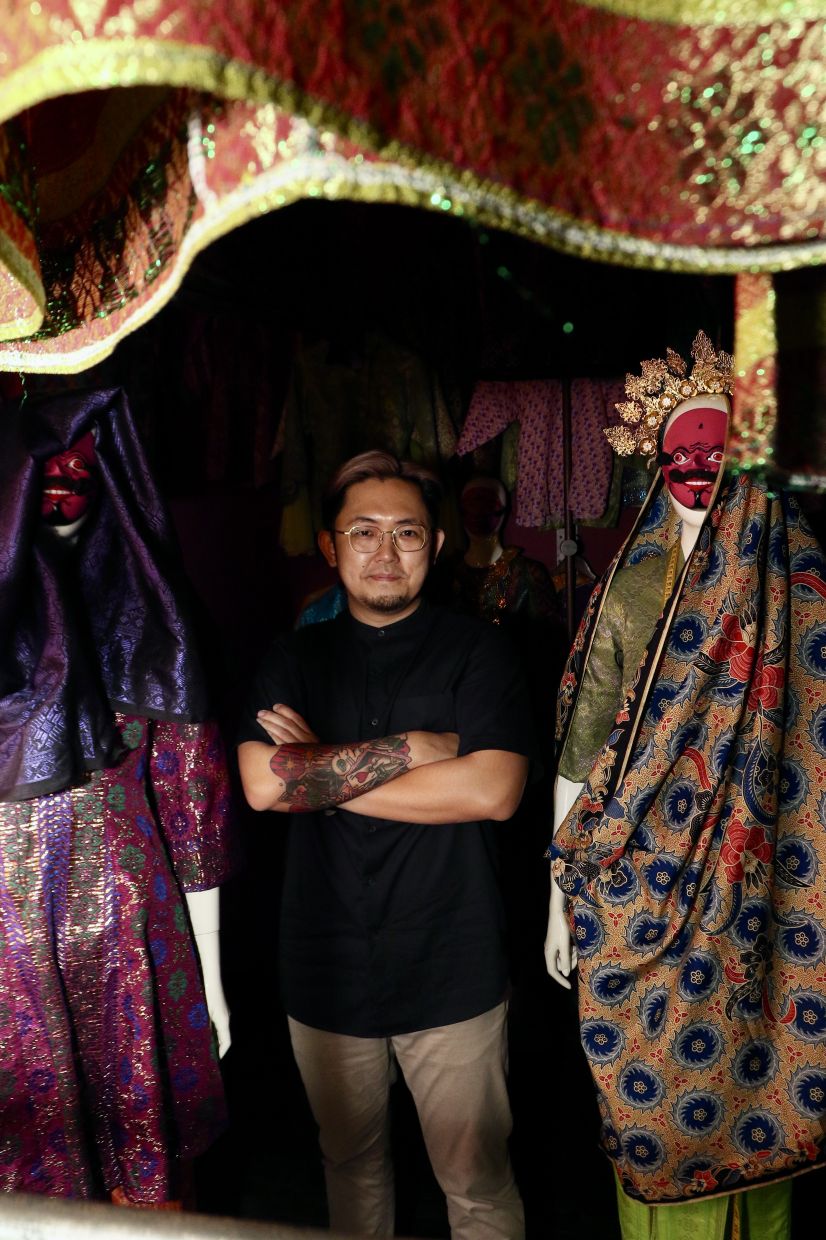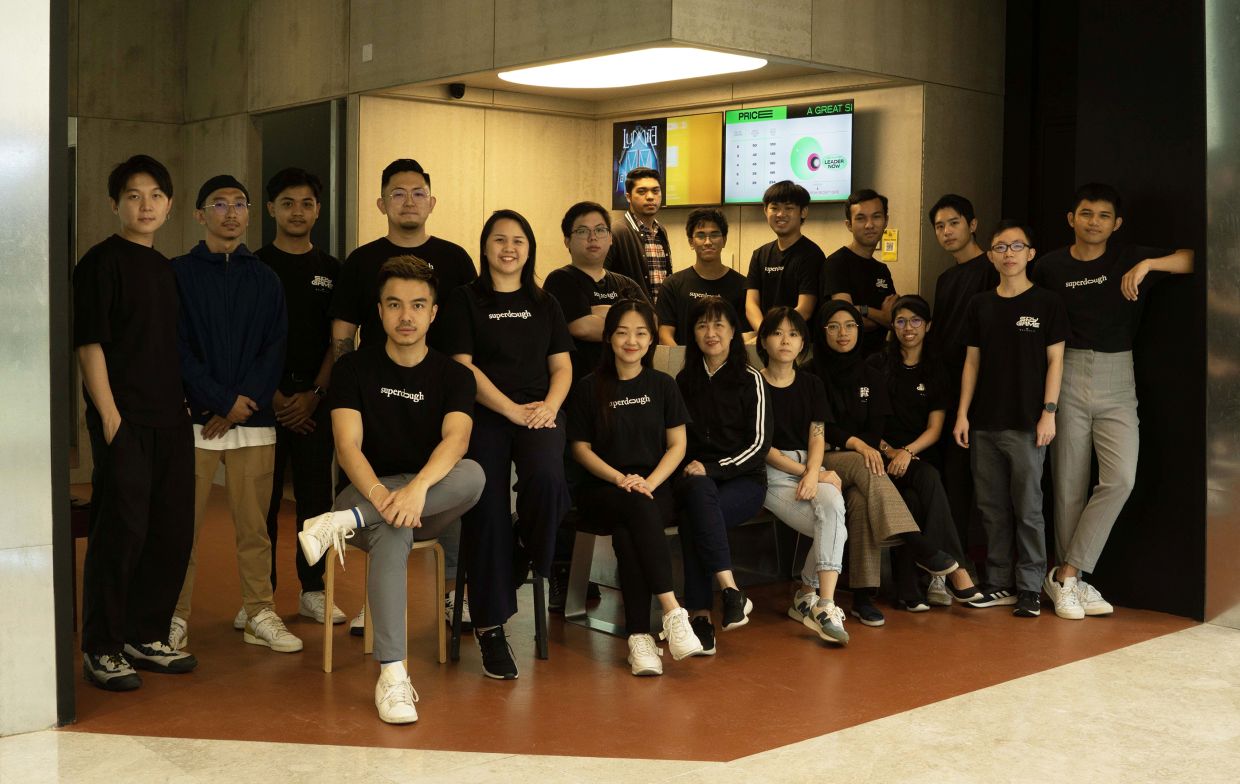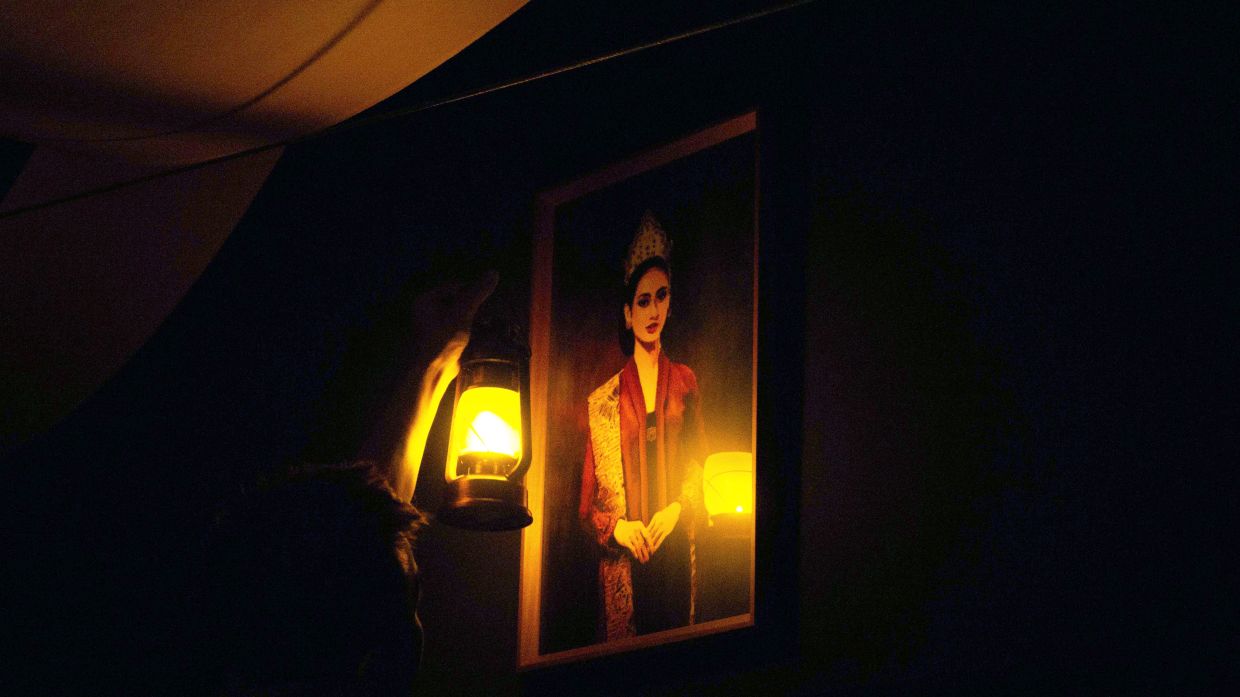The Panggung Path at the Hauntu at The Curve will let you explore a sacred dance studio and learn a dance that empowers you and protects you against dark forces and evil spirits.
IN an increasingly experience-led consumer landscape, the term ‘immersive’ gets thrown around fairly often. But at Superdough, the entertainment experience company behind Breakout, Spy Game and Hauntu, immersion is the name of the game.
Whether it is a puzzle-packed art heist mission in one of Breakout’s escape rooms, or an unsettling tour through a bygone-era hotel in the theatrical horror concept Hauntu, the aim is to plunge participants into a thrilling and altogether unfamiliar universe.
Driven by compelling storytelling and thoughtful design, Superdough has, since its establishment in 2014, continually pushed the envelope with its diverse range of interactive adventures.
One of its latest offerings is Hauntu at The Curve, its second immersive horror experience that delves into the mystical world of traditional performance arts like Mak Yong, Kuda Kepang and Wayang Kulit.
In what can be described as a cross between a haunted house attraction and immersive theatre, participants journey through a spine-tingling narrative revolving around the Seri Panggung Academy, a dance school fraught with supernatural forces. Live acting, evocative sound and visual effects, and highly detailed sets work in tandem to enfold players into the riveting tale.
“The process of creating these experiences is really fun,” says Johnny Ong, Superdough’s co-founder and head of experience design. He reveals that extensive research and meticulous detail goes into crafting the elaborate scenarios.
However, the plots cannot be so convoluted that it comes at the expense of the player’s enjoyment. “The storyline needs to be simple enough for people to understand, as we need to keep in mind that they have just stepped into a new world, and are still adapting to everything that is happening around them,” he remarks.
“For the new openings, we do two to three days of testing beforehand to make sure everything’s smooth and that customers will have a good experience.”
According to the co-founder, listening to customers has long been crucial to delivering a strong immersive offering.
“I think this is very important in terms of business. From when we started up until today, we have always cared very much about customer feedback, and we put a lot of effort into acknowledging comments and opinions and making changes where possible. Without that, we would not be able to give them a better product.”
Setting the scene
Superdough’s story started a decade ago, when the idea for the Breakout brand was sparked during a work trip to China.
It was there that Ong took on an escape room game for the first time, and the experience led him to set up a similar concept in Malaysia. Founded with his now-wife Kelly Low, and friends Cheah Ka Wai, Ee Wilken and Gavin Lim, the business opened its first Breakout escape room in Avenue K, Kuala Lumpur.
Today, not only does Breakout boast multiple outlets in the Klang Valley and Melaka, the franchise has also made its mark abroad with locations in Canada, South Korea and the United States. In 2018, the company launched Hauntu in Linc KL, a theatrical horror experience that is the first-of-its-kind in Malaysia.
“We thought that eventually we would have to expand our product offerings, because not everyone likes puzzles. So we introduced Hauntu, an immersive haunted house which does not require puzzle solving but still features an element of activity. After that, we decided to combine a bit of Hauntu and Breakout, and came up with Spy Game.”
With an emphasis on role-playing missions and physical obstacles, as well as live characters that interact with players, Spy Game offers an action-packed adventure that involves infiltrating a sinister cult.
The latest innovation from the company is Spy Game Junior, a product catering to families with children, who are invited to undergo an activity-based spy training programme filled with physical and mental challenges. “This was actually very different for us, because we usually do mystery and dark themes,” he notes.
As the business continues broadening its repertoire of experiential entertainment across different genres, we ask Ong where he and his team finds inspiration for these immersive worlds.
“A lot of it comes from movies and dramas,” he shares. “For example, Christopher Nolan has very complex films, but he is able to make the audience understand the story in a very short time.”
He also credits theatre company Punchdrunk and its acclaimed Sleep No More production as an influence when constructing theatrical immersive experiences.
Additionally, Ong stresses that his team specialising in production, graphics, tech and game design is instrumental to the creation process.
“All of them help out with producing ideas because it is very complicated. I always tell them that without them, this cannot work. It really is a team effort.”
Treading new ground
While Superdough’s team may be well-versed in brain stumping puzzles and trying challenges, pioneering a novel immersive entertainment company is not without its own set of hurdles.
Ong explains that the building process of the experiences often poses difficulties. “Because this is not a common type of business, we get a lot of confused contractors and carpenters when we explain our ideas, so we need to explain things very precisely.”
“Another challenge is fleshing out the stories themselves and making sure they make sense. When we introduce a character, we have to think steps ahead about the different interactions customers might have with them, and then prepare the actor to respond accordingly.”
This ability to adapt and innovate has served the business well over the years. During the pandemic, the company pulled through the commercially devastating period by devising an online escape game that became highly popular as a corporate team building activity.
The team have also lent their expertise to collaborative pop-up events such as Pepsi Lost in Karak, a Hauntu experience which featured Pepsi product placements cleverly woven into the immersive horror story.
Looking ahead, Ong shares that the company will be furthering its international reach with new outlets in the United States and the Middle East in the pipeline. From his observations, unique experiences are a boon for shopping malls due to their ability to draw crowds and generate footfall.
What would be his ultimate experience to design? “My biggest dream is to build a theme park, with rides that are combined with immersive experiences, and perhaps it could have a futuristic cyberpunk theme.”
Irrespective of scale, genre or setting, well-made themed immersive experiences have continually presented an irresistible appeal to consumers. For Ong, the demand boils down to the desire for new encounters.
“They just want us to create a unique world — one that they have not experienced before. I think what they want the most is to step into a place that is different and be in awe. That’s what we are constantly trying to do.”
This article first appeared in Star Biz7 weekly edition.









